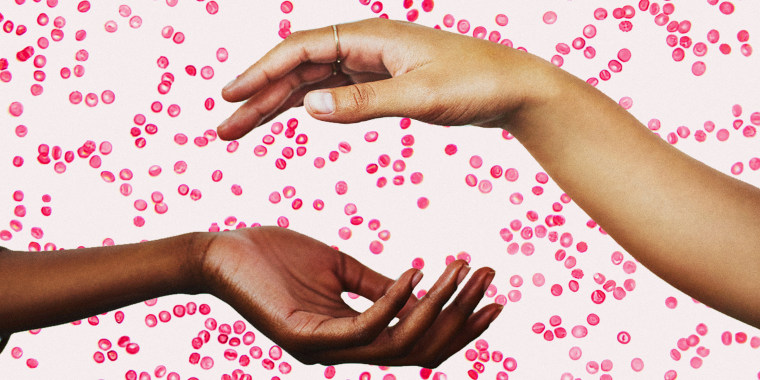Should your blood type dictate what you eat?
The theory goes like this: Your blood type can make you more or less susceptible to various health outcomes, like risk for certain diseases, fertility, reaction to stress, and the composition of bacteria in your gut. Therefore you should eat a diet that helps minimize those specific risks that come with your blood type. (There’s also different exercise prescriptions for people of various blood types.)
The Blood Type Diet was developed by Paul D’Adamo, a naturopathic physician, and first published in his 1996 book, "Eat Right For Your Type."
While D’Adamo claimed the diet recommendations are based on rigorous clinical evidence, independent reviews conclude that evidence is effectively non-existent. Still curious about what the diet entails? Here's what you need to know.
What does the science say about the Blood Type Diet?
There is some evidence that certain chronic diseases, like some cancers and heart problems, can be more likely in people of various blood types. But there’s no data to show that the different sets of foods prescribed by the Blood Type Diet will prevent those diseases any better than if people were to follow a general healthy diet with evidence to show it lowers heart disease or cancer risk (such as those recommended by the American Heart Association and the American Cancer Society).
“I would say that the body of evidence around the Blood Type Diet indicates that there isn’t evidence to support its use,” Katherine Zeratsky, a registered dietitian at the Mayo Clinic in Rochester, Minnesota, told TODAY.
A 2013 review study published in the American Journal of Clinical Nutrition concluded that there was no evidence to support that various diets worked better in people of a certain blood type compared with people of another blood type (the researchers combed published studies and failed to find any high quality enough to report on). Another study published in 2014 in PLOS ONE found that people who followed one of D’Adamo’s diets did see some improvements in heart health, but those benefits were independent of blood type.
Another study published last year in the Journal of the Academy of Nutrition and Dietetics researchers compared heart outcomes among people who ate a low-fat vegan diet with people who followed an unrestricted diet. Blood type bore no difference on the effects of the vegan diet when it came to body weight, body fat or other measures.
Because people with blood type A are at a slightly increased risk for heart disease, the notion was that they would benefit more from eating a plant-based diet, said the study’s lead author Dr. Neal D. Barnard, adjunct associate professor of medicine at the George Washington University School of Medicine and President of the Physicians Committee for Responsible Medicine, who researches effects of diet on diabetes, body weight and chronic pain. “In reality, everyone benefits from a low-cholesterol, high-fiber, plant-based diet,” he said.
What will I eat on the Blood Type Diet?
What you eat depends on your blood type:
- People with type A blood do best with a vegetarian diet and should stick to “pure, fresh and organic” foods when possible, according to the Blood Type Diet website.
- People with type B blood are advised to eat diets rich in green vegetables, fruit, dairy, eggs and certain meat, including goat, lamb, mutton, rabbit and venison. People with type B blood should avoid: corn, wheat, buckwheat, lentils, tomatoes, peanuts, sesame seeds and chicken.
- People with type O blood are encouraged to eat high-protein foods, focusing on eating meat, vegetables, fruits and fish, but should limit grains, beans and legumes.
- People with type AB blood are directed to eat tofu, dairy, leafy greens and seafood; and should avoid caffeine, alcohol and all smoked or cured meats.
Are there any risks to following the Blood Type Diet?
The foods included on each of the diets aren’t necessarily going to be harmful, but excluding the specific foods highlighted is likely unnecessarily restrictive, Zeratsky said.
It sets people up for the good-food-bad-food mentality that generally does more harm than good in the long run, she explained. “It’s probably better to build a healthier relationship with food and just enjoy more nutritious foods as part of a healthy lifestyle.”
The bottom line
When it comes to diet and food choices, blood type should be irrelevant, Barnard said. Regardless of your blood type, you will do well eating more high-fiber, nutrient-rich, plant-based foods, he explained. “On the other hand, no one with any blood type needs to be eating a diet high in cholesterol, saturated fat or animal fat.”


